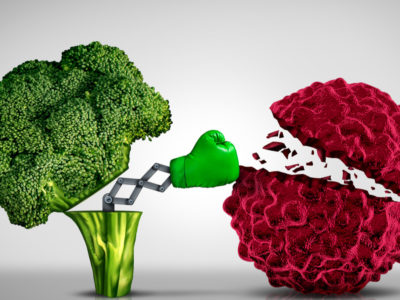
If you want to decrease your risk of heart disease and other disorders, watch your TMAO levels. Learn how to bring them down with these 10 tips.
Bring Your TMAO Levels Down and Protect Your Heart
What Is TMAO?
TMAO stands for trimethylamine N-oxide, which comes from trimethylamine. It’s what plants and animals produce when they decompose.
The body, however, also produces trimethylamine, particularly the gut microbiota. These microorganisms in the small intestines can create it by metabolizing foods rich in choline, lecithin, and carnitine.
Trimethylamine can then enter the bloodstream where it passes through the liver. It is then oxidized, transforming it into TMAO.
TMAO and Heart Disease

At first glance, these compounds are not inherently bad. For example, carnitine is necessary to help convert fat into fuel.
Choline, meanwhile, is a water-soluble element that promotes a healthy nervous system. Lecithin may help people with ulcerative colitis as it protects the lining of the intestines.
What is ulcerative colitis? It is an inflammatory bowel disease characterized by the presence of ulcers in the intestines.
The problem is people consume more of these compounds than their body needs. Before they know it, they produce high levels of TMAO which can be detrimental to their health.
One of these is the increased risk of cardiovascular disorder. A 2018 meta-analysis and systematic review of 11 cohort studies showed people with higher TMAO levels are more likely to develop heart diseases in the future.
The odds remain even if they account for other risk factors. TMAO can even be an independent risk factor for premature death and heart disorders.
One of the possible reasons is it may promote atherosclerosis or the hardening of the arteries. This can lead to the narrowing of the blood’s passageway, forcing the heart to pump harder.
Another study revealed that high TMAO levels may boost the chances of blood clotting. Clotting is essential to help stop the bleeding.
When blood coagulates more often than it should, it becomes dangerous. These clots can travel through the bloodstream and lodge themselves in different organs.
These include the heart, resulting in a heart attack or cardiac arrest. They may also develop in areas such as the brain, where they can cause a stroke.
A 2015 study published in Circulation Research cited how high TMAO levels may also be a risk factor for chronic kidney disease (CKD) or the gradual permanent damage to the kidneys.
Other types of research have revealed a link between CKD and heart disease. The research demonstrates that what ties both of these health issues is TMAO.
TMAO levels may also be a risk for the following conditions:
- Cancer
- Liver disease
- Obesity
- Chronic inflammation
RELATED: 5 Diet Tips For A Healthy Gut
How to Reduce TMAO Levels
The silver lining is knowing you can do something to help bring down your TMAO levels. Here are 10 tips:
1. Consider a TMAO Test to Gauge Your TMAO Levels
This exam can determine the levels of TMAO circulating in the body. It is relatively new, so the ranges of values can still change.
This won’t tell you if you already have cardiovascular disease. The information, though, can be your aid in gauging your progress in reducing your levels and understanding your health risks.
2. Limit Your Consumption of Foods High in TMAO
Think of eggs, navy beans, salmon, internal organs like the liver, and chickpeas. Eat them in moderation.
3. Decrease Your Intake of Red Meat to Reduce Risk of Heart Disease

In an experiment, non-vegetarian participants who eat a single serving of steak and 250mg of L-carnitine experienced a surge of TMAO as high as 1.8 parts per million. Meat also contains a lot of fat, which further worsens your risk of cardiovascular disease.
You can still eat meat but follow the recommended dietary guidelines. To reduce fat intake, consume more white than red meat.
4. Eat More Vegetables to Bring Down TMAO Levels
In the same study as #3, vegetarians who consumed 250mg of L-carnitine produced significantly less trimethylamine N-oxide than their non-vegetarian counterparts.
One of the best vegetables to reduce high TMAO levels is Brussels sprouts, but not everyone likes their taste. Your other option is to drink your greens.
5. Consider a Mediterranean Diet Since It’s Very Balanced
The Mediterranean diet refers to the eating habits of people living in Greece, Spain, and Southern Italy. Their meals usually focus on good fats, moderate protein, and lots of whole grains, fruits, and vegetables.
Some consider this the best diet in the world since it’s more balanced, and it doesn’t discriminate many food groups. It also promotes moderate consumption of food.
6. Be Cautious About Supplements as This Can Shoot Up TMAO Levels
You can increase your TMAO levels when you eat foods high in the three compounds and take supplements that also contain them. Make sure you read the labels and work with your doctor with regard to the best dosage.
7. Add Prebiotics for Gut Flora Diversity
Some people tend to confuse probiotics and prebiotics. Probiotics are the live bacteria that fermented foods such as sauerkraut produce.
Prebiotics are fibers or parts of food that the small intestine cannot digest. Instead, they go to the colon, and the bacteria there feed and ferment them.
Prebiotics can be helpful in improving the diversity of the gut flora, which may then decrease TMAO levels.
8. Be Careful with Antibiotics Since It Can Cause a Microbiome Imbalance

Some studies suggest that antibiotics may help lower levels of trimethylamine N-oxide in the blood. In fact, in a mice study, the animals that consumed too much L-carnitine eventually developed atherosclerosis, but treating it with antibiotics prevented further effects.
The assumption is that antibiotics may decrease the population of gut bacteria responsible for the production of trimethylamine.
Note, though, the same medicine can disrupt the balance of your microbiome. It’s always best to take it according to your doctor’s guidelines.
9. Eat Grapes Because It Contains Resveratrol
Grapes contain a polyphenol known as resveratrol. Studies showed it may reduce the levels of TMAO because of its prebiotic benefits.
If you can eat grapes, then you can also drink wine, especially the red type. It contains a choline structural analog called 3,3-dimethyl-1-butanol (DMB).
Based on an experiment with cultured microbes, DMB prevented the production of TMAO. It also stops the development of atherosclerosis signs among the tested mice.
10. Get Some Sleep to Prevent Heart Diseases
Improving your sleep quantity and quality can also reduce your risks of cardiovascular disease. Research from 2015 revealed those deprived of sleep can potentially boost their TMAO levels.
Just because your body produces trimethylamine N-oxide doesn’t mean you should stop eating eggs and fish. The secrets are moderation and balance.
Once you keep these in mind, you will not only reduce your risk of developing a heart disorder, but you’ll also help improve your heart health.
You May Also Like…




